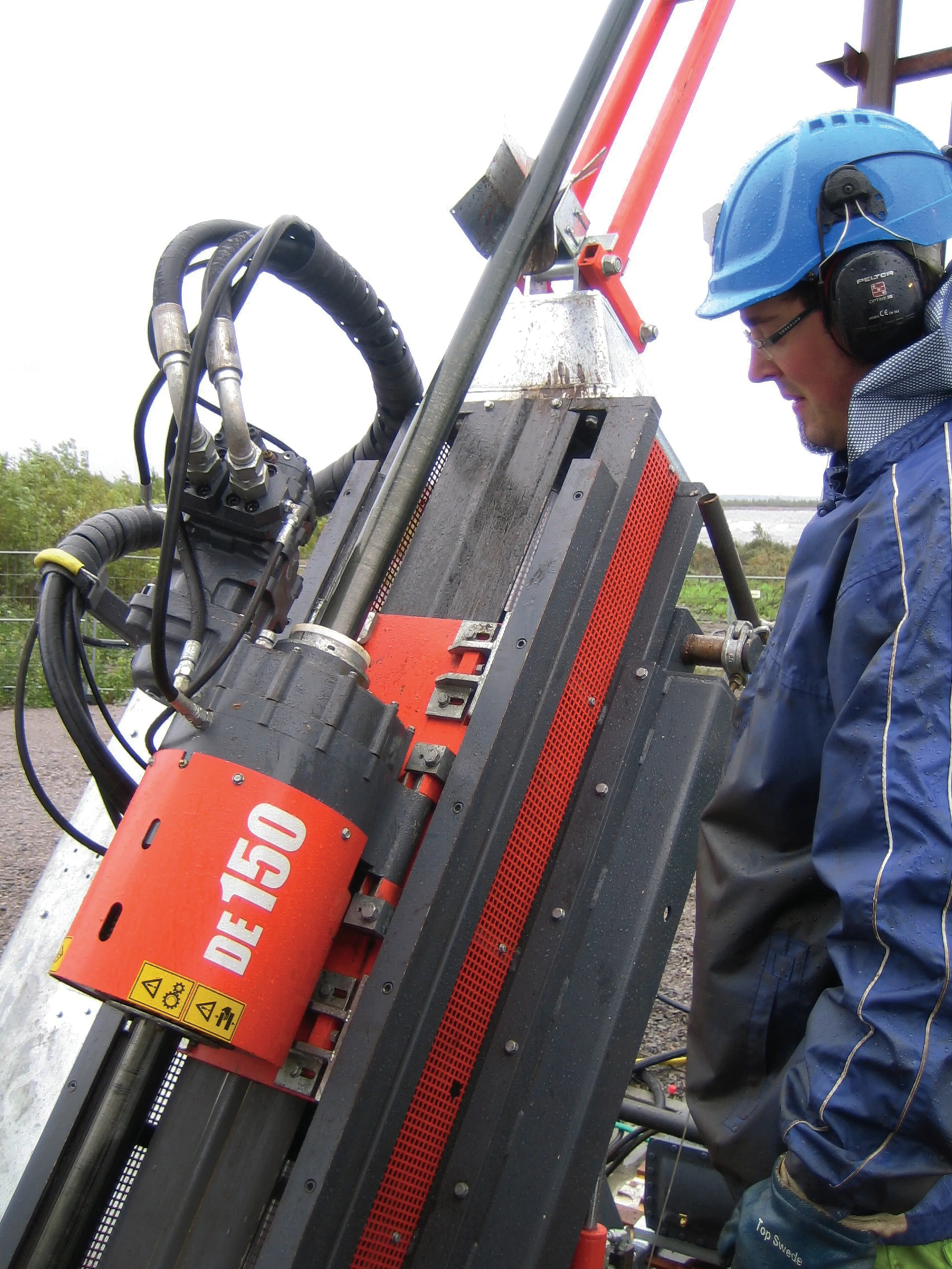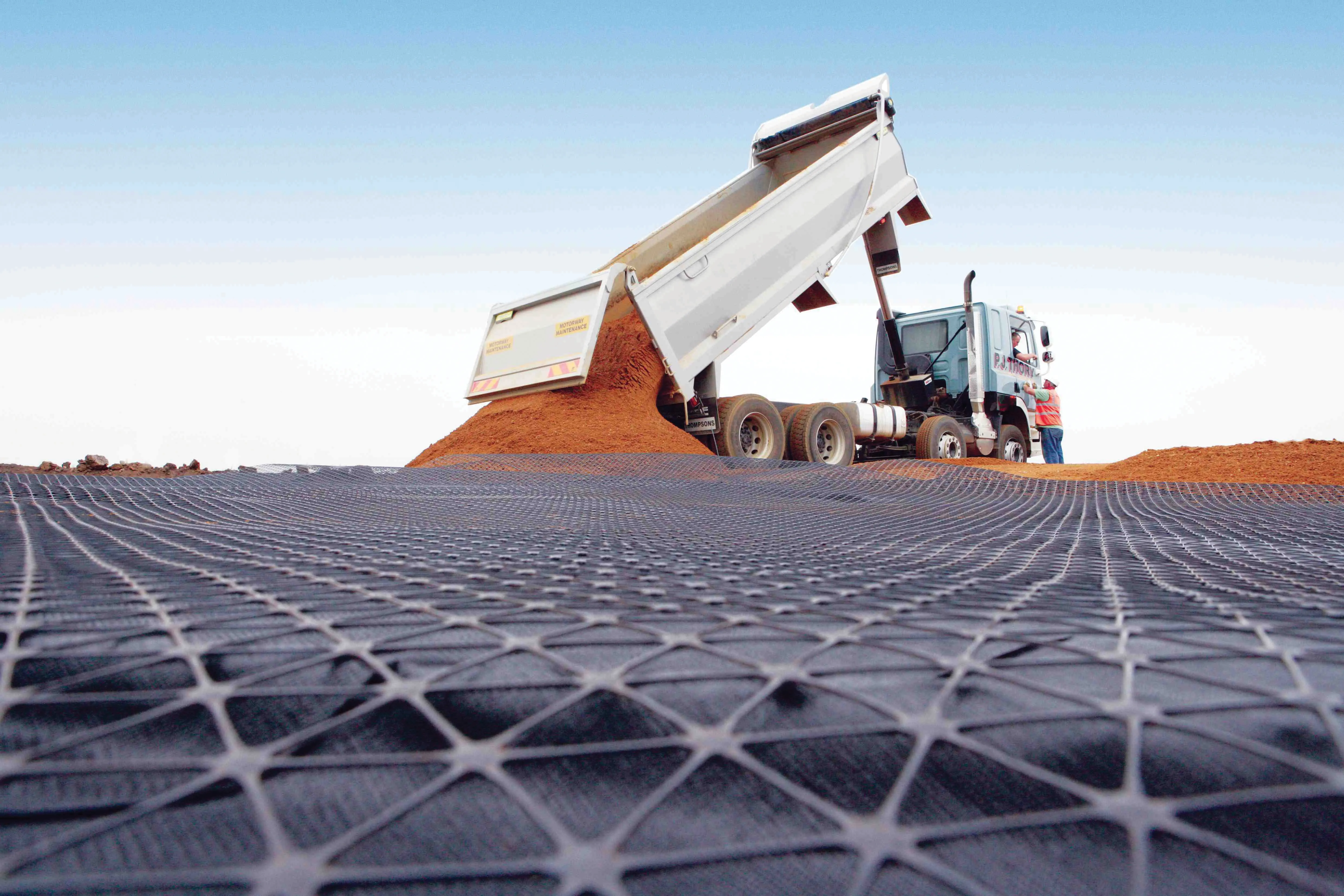Geotechnical specialists, Bachy Soletanche and Carillion Piling are currently working on an £18 million (e21 million) geotechnical contract as part of carriageway improvements on the M1 motorway to the north of London, England. The work between junctions 10-13, Luton to Milton Keynes, is being carried out for the Costain Carillion joint venture working on behalf of the Highways Agency. The piling and soil nailing works are to facilitate the conversion of the current hard shoulder to a peak-time running lane
February 7, 2012
Read time: 3 mins
Geotechnical specialists, 1485 Bachy Soletanche and 2354 Carillion Piling are currently working on an £18 million (e21 million) geotechnical contract as part of carriageway improvements on the M1 motorway to the north of London, England.
The work between junctions 10-13, Luton to Milton Keynes, is being carried out for the Costain Carillion joint venture working on behalf of the Highways Agency.
The piling and soil nailing works are to facilitate the conversion of the current hard shoulder to a peak-time running lane with further junction improvements including 60 improved sign gantries and emergency refuges, over the 25km length.
Designed by the2309 Highways Agency's engineer, Parsons Brinkerhoff, and Costain Carillion's engineer, Scott Wilson, there has been no need for additional land take.
The work is phased between the three junctions on only one carriageway at a time to avoid disruption to the travelling public and to abide by health and safety regulations.
Due to last up to 90 weeks, the project includes 250 Continuous Flight Auger (CFA) gantry piles each 750mm diameter and up to 20m long, with vibrated full-length reinforcement cages, 1600, 750mm diameter CFA piles for the contiguous bored pile walls up to 11m long in the emergency refuges, and 22,000 hollow stem and solid bar soil nails to stabilise the new cuttings and embankments, which are between 5m and 12m long.
The embankments are made up of a variety of fill materials, and the cutting slopes are generally within clay with flints over chalk (these achieve a maximum thickness of 5m and are thought to have originated from prolonged in situ weathering of outcrops of the Woolwich and Reading beds, while the chalk formation occurs as upper chalk, middle chalk, grey chalk and chalk marl along the length of the route).
The piling jv team said of the works: "High levels of safety have been paramount with this project due to working close to live traffic and some overhead power lines. This has led to a number of innovations by the Bachy Soletanche and Carillion Piling jv, including guarded soil nail rigs with a safe operator platform, improved guarding and auger cleaning for CFA piling, rope access systems, mobile grouting trailers, and a new Geoweb securing system. The new developments ensure work can be completed within the specified time frame with minimised safety risks."
The work between junctions 10-13, Luton to Milton Keynes, is being carried out for the Costain Carillion joint venture working on behalf of the Highways Agency.
The piling and soil nailing works are to facilitate the conversion of the current hard shoulder to a peak-time running lane with further junction improvements including 60 improved sign gantries and emergency refuges, over the 25km length.
Designed by the
The work is phased between the three junctions on only one carriageway at a time to avoid disruption to the travelling public and to abide by health and safety regulations.
Due to last up to 90 weeks, the project includes 250 Continuous Flight Auger (CFA) gantry piles each 750mm diameter and up to 20m long, with vibrated full-length reinforcement cages, 1600, 750mm diameter CFA piles for the contiguous bored pile walls up to 11m long in the emergency refuges, and 22,000 hollow stem and solid bar soil nails to stabilise the new cuttings and embankments, which are between 5m and 12m long.
The embankments are made up of a variety of fill materials, and the cutting slopes are generally within clay with flints over chalk (these achieve a maximum thickness of 5m and are thought to have originated from prolonged in situ weathering of outcrops of the Woolwich and Reading beds, while the chalk formation occurs as upper chalk, middle chalk, grey chalk and chalk marl along the length of the route).
The piling jv team said of the works: "High levels of safety have been paramount with this project due to working close to live traffic and some overhead power lines. This has led to a number of innovations by the Bachy Soletanche and Carillion Piling jv, including guarded soil nail rigs with a safe operator platform, improved guarding and auger cleaning for CFA piling, rope access systems, mobile grouting trailers, and a new Geoweb securing system. The new developments ensure work can be completed within the specified time frame with minimised safety risks."








